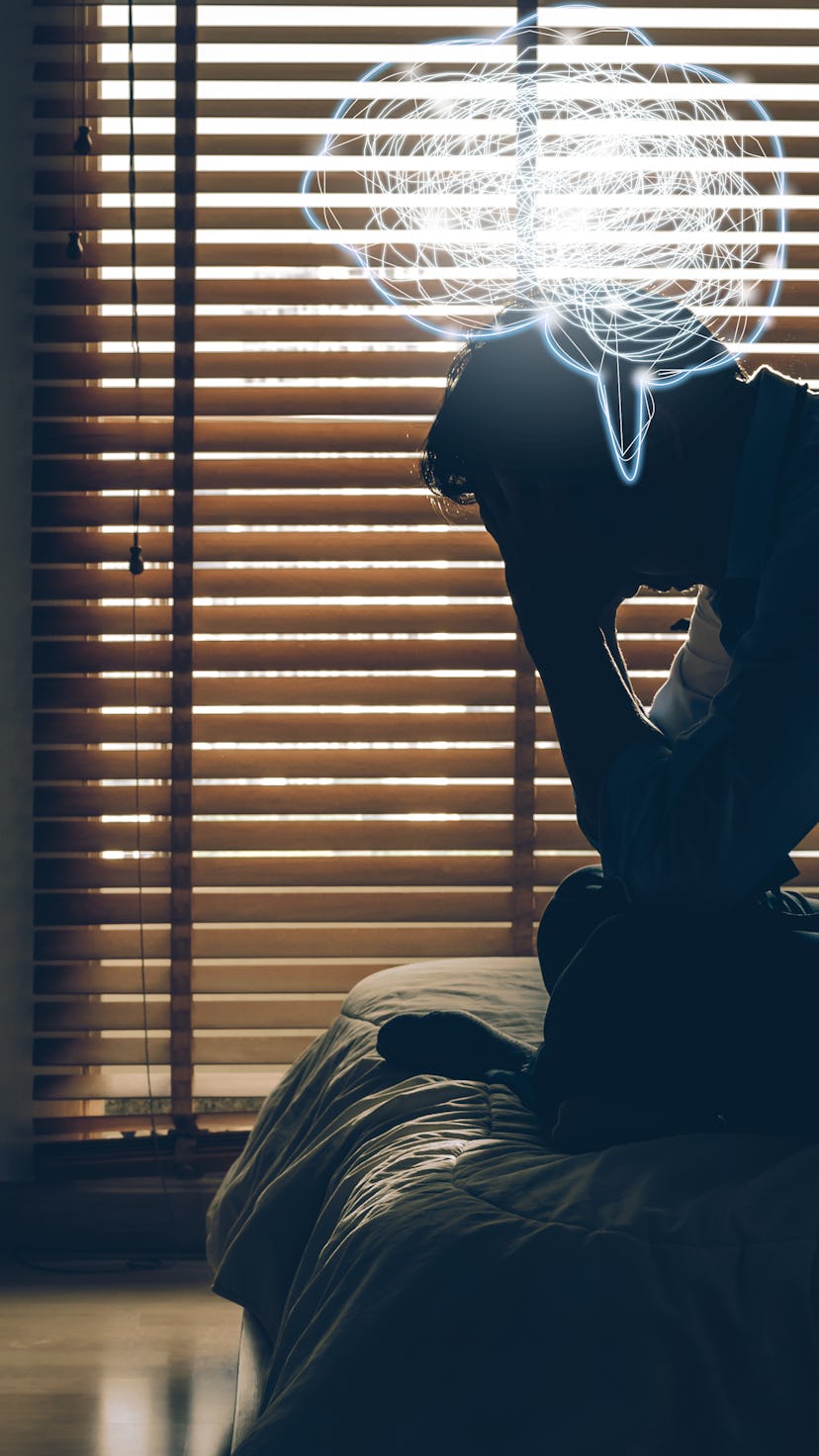Here’s why people with depression and schizophrenia need COVID-19 boosters now
That mind-body connection is real.

When it comes to factors that increase someone’s chances for developing severe COVID, physical conditions — like cancer, diabetes, or a compromised immune system — are often first to leap to mind. But last month, the CDC made what at first glance may seem like an unlikely addition to this list of risk factors: mental health conditions. “Having mood disorders, including depression, and schizophrenia spectrum disorders can make you more likely to get severely ill from COVID-19,” the agency explained on its website.
This is huge. It means that people with these diagnoses — which could number in the millions — are now eligible for COVID-19 booster shots. The National Institute of Mental Health estimates that more than 19 million adults in the U.S. have experienced at least one major depressive episode. An estimated 1.5 million U.S. adults live with schizophrenia, according to estimates from the National Alliance on Mental Illness.
The CDC’s update arrives as a growing number of studies uncover associations between certain mental health conditions and heightened risk of severe COVID. An analysis of 21 studies published in JAMA Psychiatry in October suggests that people with mood disorders are more likely to be hospitalized with COVID, or die of it. In another study that appeared in the same journal in January, COVID-19 patients with schizophrenia had a threefold higher risk of death, though people with mood and anxiety disorders weren’t more likely to die of the disease.
But a link between these conditions and COVID isn’t actually that far-fetched — those of us who manage mental health issues know all too well the toll psychological health can take on physical health. The question is, how might mood disorders and schizophrenia heighten someone’s risk of severe COVID? Mic asked a psychiatrist to break it down.
One possibility is that the chronic inflammation associated with some mental health conditions could worsen COVID outcomes. Research has associated this steadily simmering, whole-body form of inflammation with depression, as well as schizophrenia, and suggests that it may make the immune system more reactive. What does that have to do with COVID, you ask? An overactive immune response in COVID patients can lead to multiple organ failure and other potentially deadly complications as the body essentially attacks itself.
“Chronic inflammation could be an underlying mechanism that puts people at risk of all kinds of mental illness, including depression and schizophrenia, and at risk of the most severe forms of COVID,” says Petros Levounis, professor and chair of the department of psychiatry at Rutgers New Jersey Medical School.
Levounis speculates that mood disorders and schizophrenia might also make people more likely to engage in certain behaviors that raise their risk of becoming seriously ill with COVID. He tells Mic of a COVID outbreak early on in the pandemic in the inpatient unit where he worked, which was eventually traced to a patient with schizophrenia. The patient wasn’t a menace, he explains — he just “loved hugging people.” Indeed, people with schizophrenia struggle with processing information, Levounis explains, which might make them less likely to follow precautions like social distancing, masking, and the like.
Meanwhile, tasks like seeking medical help or following up on test results are especially challenging for people living with depression, he tells Mic. He explains that while most people would immediately get tested if they lost their sense of taste or smell (telltale symptoms of COVID), someone with depression may delay seeking help, or forego it altogether “and therefore end up with a far more significant course of illness.”
Anxiety disorders might actually be protective, the hypervigilance they cause spurring people to seek help earlier and take all the necessary preventative measures.
They know they may very well have COVID — “it’s just that they don’t care,” he says. In their view, “life might not even be worth living, so what’s the point?” Following this logic, anxiety disorders might actually be protective, he says, the hypervigilance they cause spurring people to seek help earlier and take all the necessary preventative measures.
People with bipolar disorder, a mood disorder that involves swinging between extreme highs — hypomania or mania — and extreme lows — depression —may have a combination of the psychological risk factors seen in people with depressive and schizophrenia spectrum disorders, according to Levounis.
Since they tend to experience depression more often than they do hypomania or mania, they also struggle with the same helplessness and hopelessness as those with unipolar depression (what we usually mean when we say “depression”), he explains, making it harder for them to seek help, potentially worsening their outcomes. But when they experience hypomania or mania, they have difficulty processing information not unlike people with schizophrenia, increasing their likelihood of engaging in high-risk behaviors.
Levounis emphasizes that these psychological risk factors are based on his own speculations as a psychiatrist. Even then, it’s not hard to imagine how, together with the biological risk factor of chronic inflammation, they can not only leave someone more susceptible to infection with the virus, but also cause them to fare worse than someone who contracts COVID but doesn’t have the same mental health diagnosis.
If you live with any of these mental health conditions, you’ll want to get your first dose or booster if you haven’t already. Levounis also suggests seeking medical attention sooner than you would normally, especially if you live with depression, and continuing to take preventative measures. As worrisome as it might seem for a mental health diagnosis to increase your risk of severe COVID, you still have options for keeping it in check.